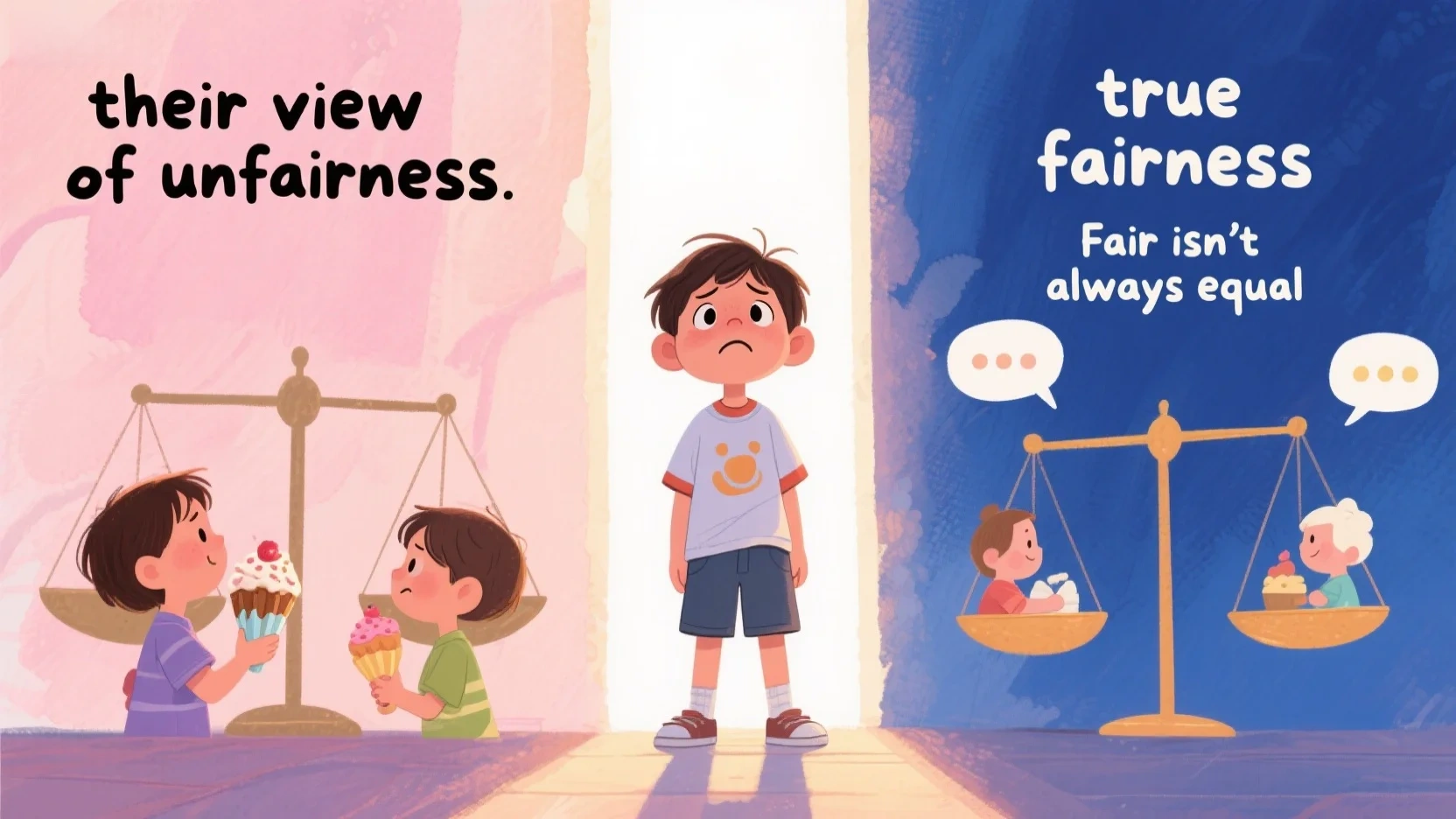Why Kids Say “It’s Not Fair!”
Children often see the world in black-and-white terms. When they claim something is unfair, they might actually be feeling:
- •Left out (e.g., a sibling got more attention)
- •Frustrated (e.g., a rule feels too strict)
- •Powerless (e.g., they didn’t get to choose)
Key Insight: It’s rarely about true fairness—it’s about their emotions.
6 Ways to Respond with Empathy & Teach Real Fairness
1. Listen First—Ask, Don’t Dismiss
❌ “Life isn’t fair—get over it!”
✅ “Which part feels unfair to you?”
✅ “Tell me more—I want to understand.”
Why? This helps them feel heard and calms the emotional storm.
2. Validate Their Feelings (Even If You Disagree)
- •“I see why you’d feel that way.”
- •“It’s tough when things don’t go how we want.”
Avoid: “You’re being dramatic.”(Shuts down communication.)
3. Teach: “Fair ≠ Equal”
- •Example: “Your baby sister needs more help because she’s little—just like you did when you were her age.”
- •Visual Aid: Give a tall and short child boxes to reach a shelf. “Fair means giving each what they need to succeed.”
4. Problem-Solve Together
- •“What would make this feel more fair next time?”
- •“Should we make a new rule? Let’s brainstorm.”
Bonus: Kids who help create solutions feel more in control.
5. Use Stories & Role-Play
- •Books: “Should I Share My Ice Cream?”(Mo Willems)
- •Pretend Play: “What if YOU were the teacher? How would you decide?”
Why? Stories help kids see others’ perspectives.
6. Let Them Experience Mild Unfairness
- •Example: If they lose a game, say: “Sometimes luck isn’t on our side. What can we do next time?”
- •Goal: Build resilience, not resentment.
When to Worry
If a child constantly claims unfairness (especially with anger or anxiety), it might signal:
- •Perfectionism (fear of failure)
- •Sibling rivalry (needs more 1-on-1 time)
- •Anxiety (struggles with uncertainty)
Consult a pro if: It’s affecting their friendships or happiness.
Quick Cheat Sheet
| Situation | Best Response |
|---|---|
| “You love my sister more!” | “I love you both. What makes you feel that way?” |
| “Why do I have to go to bed earlier?!” | “Kids need more sleep to grow. When you’re older, you’ll stay up later too!” |
| “He got a bigger piece!” | “Let’s take turns choosing first next time.” |
Final Thought
Fairness is a skill—not a rule. By guiding kids with patience and empathy, they’ll learn to navigate life’s ups and downs with grace. 💙
Try This Today: Next time they say “Not fair!”, pause and ask: “What’s the fairest solution YOU can think of?”
(Sources: Child psychology studies, parenting experts like Dr. Becky Kennedy, and real-parent tested strategies.)








